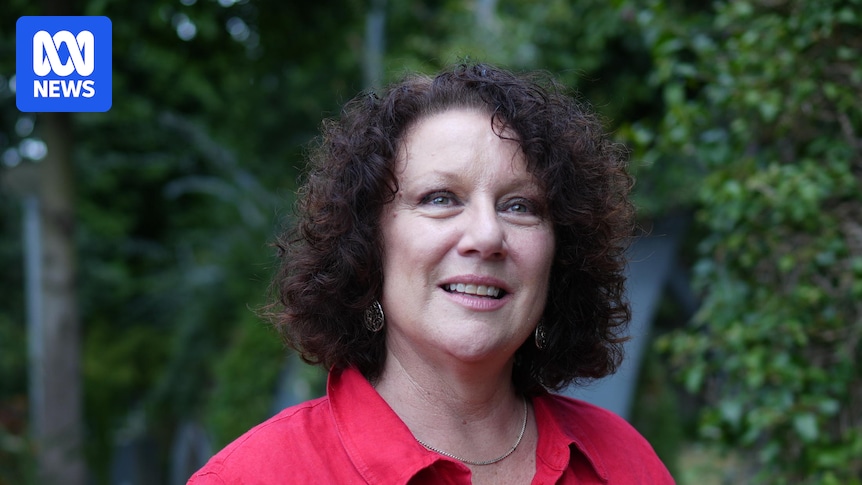
In June 2023, Kathleen Folbigg was unexpectedly summoned to the prison governor’s office. Anticipating bad news or a reprimand, she was instead informed of her pardon and imminent release after serving 20 years of a 30-year sentence for the wrongful conviction of killing her four children between 1989 and 1998. “To say I was shocked and stunned was an understatement,” Kathleen shared with Sarah Kanowski on ABC Conversations.
Within an hour, Kathleen had shed her prison greens and was on her way to a friend’s property, beginning the process of adjusting to life outside the confines of prison. Her release marked the culmination of a long campaign led by her childhood friend, Tracy Chapman, who tirelessly advocated for her case to be re-examined.
The Trials of a Wrongful Conviction
Kathleen’s life before her ordeal was typical of a suburban stay-at-home mother. After marrying Craig Folbigg at 20, the couple was living in Newcastle when tragedy struck. Over a decade, their four children, Caleb, Patrick, Sarah, and Laura, died at young ages, initially attributed to natural causes. However, after Laura’s death in 1999, a police investigation led to Kathleen’s arrest in 2001 and subsequent conviction, largely based on her grief-laden journal entries.
During her trial, Kathleen stood almost alone, with her husband and foster sister testifying against her. The media vilified her, and public sentiment was overwhelmingly negative. Yet, a Salvation Army couple offered her support, helping her endure the daily media frenzy.
“Without them, I probably wouldn’t have survived,” Kathleen reflected.
Life Behind Bars
At 33, Kathleen entered prison, branded as Australia’s “worst serial child killer.” The nature of her charges made her a target for other inmates, necessitating her isolation for the first two years. “Other inmates … would have probably killed me if they’d had the chance,” she recounted.
To survive, Kathleen developed a tough persona, using a “look that would melt a lemon” to ward off potential threats. Despite the challenges, she maintained resilience, often relying on verbal confrontations to keep others at bay.
The Power of Friendship and Advocacy
Not long after her incarceration began, Kathleen received a letter from Tracy Chapman, her childhood friend. Despite not having spoken for over a decade, Tracy was moved by the media coverage and felt compelled to reach out. “It was more a discombobulated, concerned sort of inquiry, really, because it didn’t match the person I knew,” Tracy explained.
Their rekindled friendship led to regular correspondence and visits, with Tracy and other school friends advocating for a new inquiry into Kathleen’s case. Their efforts gained momentum in 2018 after her story was featured on Australian Story, coinciding with scientific advancements that introduced new genetic evidence in her defense.
“It solidified the truth,” Tracy said, referring to the genetic findings that supported Kathleen’s innocence.
The Role of Science in Justice
Geneticist Professor Carola Vinuesa’s discovery of a rare cardiac genetic mutation in Kathleen and two of her children provided a scientific basis for questioning the original convictions. Despite resistance from Craig Folbigg to provide a DNA sample, the new evidence prompted a second inquiry ordered by the NSW Attorney-General in late 2022.
This inquiry, combined with expert analysis of Kathleen’s diaries as expressions of grief rather than guilt, led to her eventual pardon and release. Tracy was at Kathleen’s side when her sentence was quashed in December 2023.
Life After Exoneration
Since her release, Kathleen has been navigating a world vastly different from the one she left. “Making appointments for doctors … it’s all automated. Where have all the people gone?” she joked, highlighting the challenges of adapting to modern life.
Despite the joy of newfound freedom, Kathleen faces lingering fears, particularly around children, stemming from her traumatic past. “I used to think to myself, ‘Oh my God, if I touch that child, or I say hi to that child … that night it might fall asleep and not wake up,'” she admitted.
“I don’t sit where my back’s exposed and people are walking behind me,” Kathleen said, describing the lasting impact of prison life.
Remembering Her Children
At the heart of Kathleen’s story are the memories of her children. Although she once refrained from speaking about them, fearing others’ judgment, she now shares treasured memories with Tracy and her extended family. “I would rather recall the more joyful, happy memories of them,” she said.
With her name cleared, Kathleen is hopeful about the future. She has a partner, a published book, and is on a national press tour. Her journey, once unimaginable, is now a path of rediscovery and healing.
As Kathleen embraces her new life, she hopes Tracy can finally relax after years of unwavering support. “I kept watching her and going, ‘OK, now you can stand down … I’m out,'” Kathleen said, reflecting on their shared victory.




